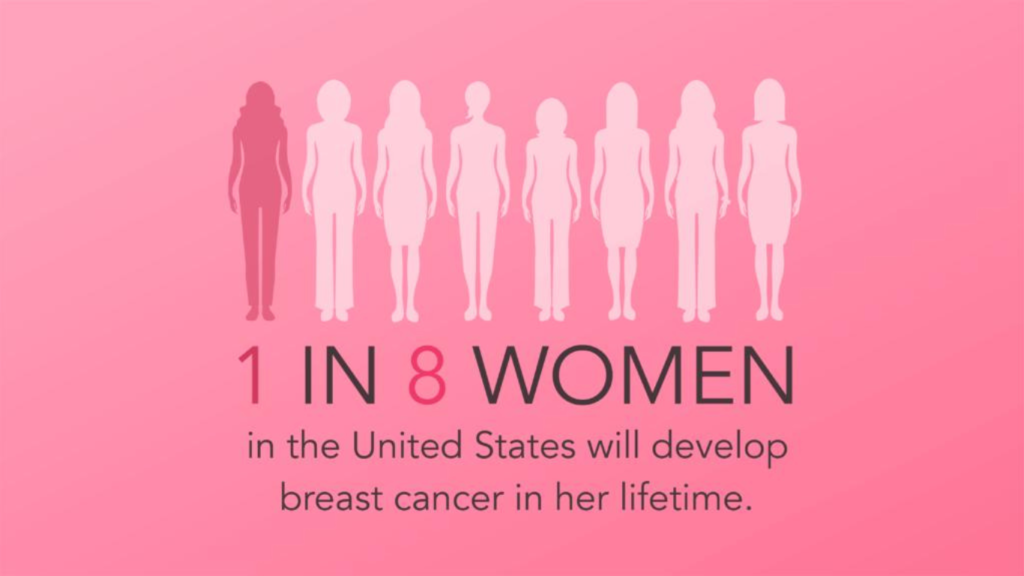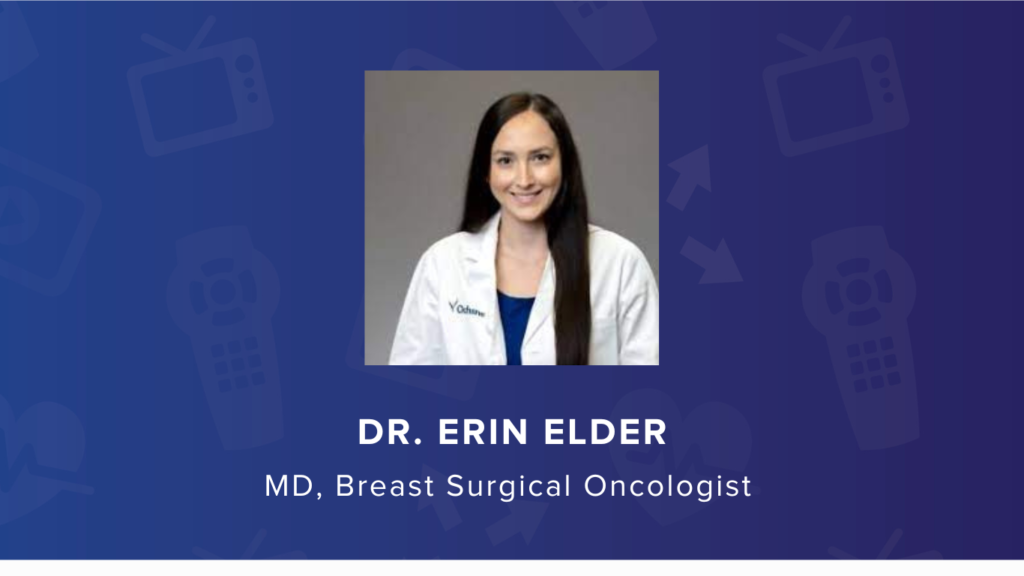
October is Breast Cancer Awareness Month. There are over 3.8 million breast cancer survivors in the United States, and one in eight women will be diagnosed with breast cancer in their lifetime. Recently we were able to sit down and interview Dr. Erin Elder, whose specialty is breast surgical oncology and the diagnosis and treatment of breast cancer. Dr. Elder practices at Lieselotte Tansey Breast Center at Ochsner in New Orleans, LA. She is a member of the Society of Surgical Oncology and the American Society of Breast Surgeons.
According to statistics published by the National Breast Cancer Foundation, “On average, every 2 minutes a woman is diagnosed with breast cancer in the United States.” The organization also notes that in this year alone a staggering 43,550 women will die from breast cancer in the U.S. Dr. Elder explains, “A lot of breast cancer patients are healthy women, and this is probably the worst thing that has ever happened to them in their lives. They are great patients, very motivated to take on this challenge and it is a rewarding field to be in because the patients are so great.”

Detection
Early detection is key to helping patients who are diagnosed with breast cancer in order to have the best chance of success. Dr. Elder advised what to look for when it comes to detection. “A lot of patients have no symptoms, and their breast cancers are found just based on their screening mammogram. Some patients do have symptoms, usually, that is a palpable mass or a change in the thickness of their breasts or some changes to the skin. Some patients do have pain, but that's actually fairly rare,” she said. One way patients can be proactive about their health is to get regular mammograms. Dr. Elder advised patients to follow the national guidelines, which encourage women to get regular mammograms at the age of 40. “I usually see patients getting mammograms once a year, starting at age 40. Patients younger than 40 sometimes are recommended for screening mammograms or even MRIs usually based on individual risk factors. Primary care doctors will often use a special calculator that gives patients a risk score if they start seeing risk factors like multiple family members with breast cancer or other factors. If a patient's found to have a greater than the lifetime risk of 20% for breast cancer, they often can start mammograms at 30 and also can start MRIs at 25. So, there are some options out there if you feel like you are at elevated risk. It might be worth asking your primary care doctor if they could calculate a risk score for you to see if you have fallen in that category of greater than 20%,” she said. Dr. Elder stated that while the national average risk is around 12%, a lot of insurance companies will cover additional early screening if the patient’s risk factor is greater than 20%. Sometimes patients also get genetic testing and Dr. Elder revealed that the price for those tests has come down significantly over the last few years, opening more availability for patients to receive them and more insurance to cover the cost.
Lastly, while men do not need to get regular mammograms, they should note that while breast cancer mainly affects women, men are also at risk for breast cancer. According to the American Cancer Society, more than 2,700 men are diagnosed with breast cancer each year and approximately 530 men die from the disease.

What to Ask Your Doctor
Dr. Elder has some advice for those who have been diagnosed with breast cancer. “I think the main thing to consider with breast cancer is the importance of understanding your individual tumor characteristics and how that impacts your outcomes, and also your choices in treatment,” she said. “I think it's just important for patients to understand their particular cancer since it is so individualized,” she continued.
Dr. Elder emphasized that patients should not focus too much on the stage of their cancer. “I feel like people focus too much on what stage their cancer is. Luckily, throughout most of the stages of breast cancer, patients do very well and have high survival rates. I don't want patients to get bogged down on the stage because even if they are at a slightly higher stage, they still have a great chance of doing well,” she said.
Holistic Care/ Education
Dr. Elder supports a comprehensive approach to patient care, an approach supported by the patient experience solutions offered by Journey PX. These solutions offer patients a more holistic approach to healing while they're in the hospital. “When patients get cancer diagnoses, they often have a lot of anxiety, which is very understandable. It’s helpful for them to have these tools to help them cope.
Tools such as the Journey PX solution My Stay, which offers patients calming videos for relaxation and meditation, as well as an extensive library of patient education videos which allows patients to access the education, they need in order to become more informed about their condition and proactive about their care. Dr Elder explained why this is so helpful for breast cancer patients. “A lot of patients are interested in what they can do personally to help with their cancer. I think a lot of people feel a lack of control over their bodies when they get diagnosed. Therefore, a lot of people are asking questions such as: What should I eat? What should I do? Is there anything I can do other than what the doctors recommend that would help me? So, I think a lot of patients are interested in holistic approaches, or what we call integrative health solutions. So definitely if a patient was diagnosed with cancer, it would be helpful to have these types of resources,” she said.
Other valuable tools offer cancer patients peace of mind by providing them with information such as the Journey PX solution My Day Today, which is a digital whiteboard that integrates with the hospital’s EMR and provides accurate health information to patients and their families in real time. Lastly, patients can obtain the emotional support they need by connecting with loved ones virtually in their hospital room with Journey PX’s Connect solution. All of these tools provide patients with a holistic approach to care that really supports their well-being, and in turn, their recovery.

The in-room patient experience technology solutions such as those offered by Journey PX are helpful in a variety of other ways as certain scenarios come about for breast cancer patients that require special support. Dr. Elder explained these. “Sometimes patients don't have the resources to get their screening mammograms, and sometimes they do show up with a mass at the Emergency Department. It’s hard for those patients because they might not be seeing a specialist at that time. So, they can really get some of that diagnostic information and support from these resources. I also think using this type of system is helpful because people learn in different ways. I find a lot of times in appointments with patients it takes about an hour, and they get all this information, and it is hard for them to absorb it. ” she said. It might be helpful to be able to read it or to have something that they can watch at their own pace so that they can get information in a different way that may be better suited to their learning style,” she said.
A system like Journey PX also supports the interoperability of hospital care teams, which allows for lean clinical workflows, better communication, and a better patient experience. Nurses can support the patient by assigning them an education that is particular to their surgery. The My Stay solution offers a video on mastectomy education after every mastectomy, which gives the patient the ability to watch that education over and over if they would like. Journey PX solutions also support the patient’s families by providing them with education and information as well.
You can hear more from Dr. Elder about breast cancer awareness, including some of the latest technologies that are being used to combat the disease in our latest PX Space podcast interview. View more information on Breast Cancer Awareness month and support the cause on the Susan G. Komen website.

Listen to the full interview on the PX Space podcast available on Apple Podcasts, Spotify, and Amazon Music.

